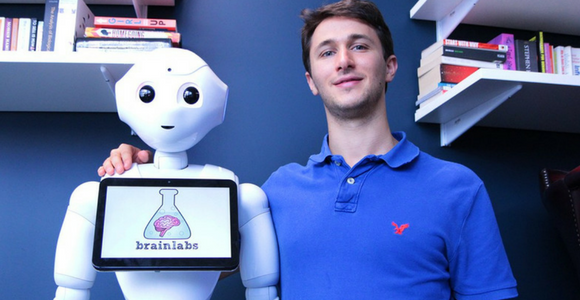 Technology is advancing exponentially and this is causing dramatic changes in every aspect of our lives, including the workplace.
Technology is advancing exponentially and this is causing dramatic changes in every aspect of our lives, including the workplace.
Here we take a look at some of the main developments, and how they could affect your job now or in the not too distant future.
Automation includes the use of robotics in industries like manufacturing, and also artificial intelligence and machine learning in the software industry. Let’s take a closer look at some of the more recent technological advances affecting the workplace.
Customer Service
Automation is changing the face of customer service. One significant way in which customer service has become automated over the last decade is with the use of chatbots – computer programmes designed to simulate conversations with human users. In the U.S., 44% of consumers already prefer chatbots to humans when they log-on to a customer service platform. Chatbots work by learning from historical customer service data, natural language and interactions so that they can interact with customers and give high quality answers to their questions. If a situation occurs that the chatbot algorithms don’t yet know how to handle, a human can step in, whilst the chatbot observes them so they know what to do next time.
Administration
Software robots and virtual assistants are emerging into white-collar workplaces, fulfilling administrative duties such as auto-correspondence, appointment scheduling, client profile updates, insurance claims processing, credit card applications, healthcare patient registration and other repetitive, time consuming work. In 2016, robot receptionists were introduced at a hospital in Belgium [it feels like you should say something about this – was it successful? What did people say? Etc]. London media agency, Brainlabs, followed suit earlier this year – the robot can greet guests and even make tea and coffee.
Finance
Many of the structured and logic-driven aspects of the financial sector can already be automated, including customer service provision. Artificial intelligence, however, can do something that chatbots can’t – dealing with exceptions to the rules. Artificial intelligence software can solve problems it hasn’t seen before, eliminating the need for human customer service team members to step in, therefore freeing up resources to focus on other important tasks.
Recruitment
Corporate job opportunities receive about 250 applicants each, which are then whittled down to 4-6 candidates, according to a report by uptowork.com. Not only this, but up to 88% of CVs received are unqualified [what does this mean? Do you mean from candidates with no qualifications, or do you mean CVs that are not assessed/checked?]. Sifting through all of these CVs and creating a shortlist is extremely time consuming for recruiters, who are increasingly turning to AI to automate this process. Recruitment software scans CVs for keywords, or learns what suitable candidates look like based on previous hiring decisions. It can even combine this data with information from candidates’ social media profiles and their digital footprints. Automation can also be used by recruiters for other administrative tasks like updating candidates on the process, asking pre-qualifying questions, or providing feedback.
How will automation affect your job?
Some reports estimate that around 47 per cent of jobs could eventually be lost to automation. But don’t panic.
The benefits automation brings could be huge in term of efficiency and productivity. Consider some of the most recent advances in automation that are making our lives easier:
- automated check-in kiosks, passport control and boarding pass scanning at airports
- contactless payment and self-checkouts
- automated parking
- online banking
McKinsey.com argues that instead of worrying about the stability of our jobs, we should instead be looking forward to “freedom from boring work, and improved quality of life.” They also point out that “very few occupations will be automated in their entirety… certain activities are more likely to be automated, requiring entire business processes to be transformed, and jobs performed by people to be redefined.” Physicians, CEOs and financial managers all have significant parts of their activities that can be automated.
However, this doesn’t mean we should rest on our laurels and wait for life to get easier. A culture of lifelong learning will be essential to ensure that our roles are not devalued as automation increases, with workers needing to constantly upskill and evolve along with their industries.
